Hi, my friends. Barbarella here. Did you know that there’s a new drama about a hitman coming to Digital and On Demand tomorrow, April 19? French language film DUSK FOR A HITMAN may be based on a true story, but it includes its share of fiction. Written by Martin Gerard and Raymond St-Jean, who also directed, the film transports viewers back to the late 70’s, early 80’s as the most feared hitman in Montreal finds himself a target.
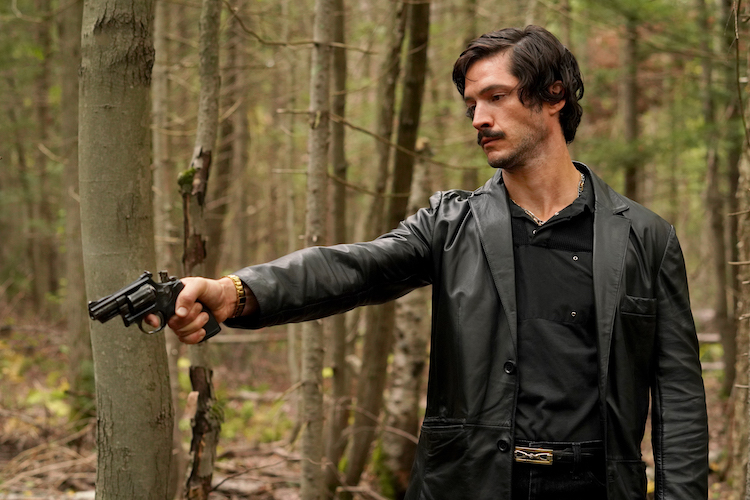 Make no mistake. This is not a John Wick action-packed assault on your senses. No, DUSK FOR A HITMAN plants itself firmly in the realm of drama.
Make no mistake. This is not a John Wick action-packed assault on your senses. No, DUSK FOR A HITMAN plants itself firmly in the realm of drama.
While I like the film, portions of the story feel quite familiar to me because I recently finished the Max series TOKYO VICE, which includes a similar narrative around a gangster and his brother who wants to be in the life. I feel it’s unfair to compare the two, because they handle the subject differently, and the series has the time to really flesh out the characters and situations over several episodes. The added time granted allows a deeper connection to the characters than DUSK FOR A HITMAN’s runtime provides. That said, Érik Bruneau’s performance as a conflicted man truly enhances the movie’s impact. The film also beautifully captures the vibe of the era and removes the glamour from the gangster lifestyle.
I had the opportunity to speak with director and co-writer Raymond St-Jean. Check it out, mes amis!
This movie is based on an actual person, and I was just wondering, how much time did you spend speaking with the real Donald?
“None. I've never met him. First, at the time, he was still in hiding. We didn't know how to get to him. At one point, we decided not to talk to the actual people in the real story. We chose to go from the newspaper articles, the books there were, and the few interviews he made to try to imagine the story of the man. We just went along with that. We never really asked ourselves the question afterwards, because we had this idea that each side would tell his own story, and they would be very different from each other. At one point, we met a judge, and she told us, "These people, they lie all the time. They're all narcissists, and they will try to use you, and you can reform things. They will lie to you."
“It's not Winston Churchill; it's a criminal and murderer, so we felt free to take the story from the newspapers. The story arc is real. All the plot points are there, and these things happened. Of course, we changed characters and changed some events, but it's kind of true. We said, "Well, let's tell the story of this man as we imagine it, and maybe we'll be close to reality."
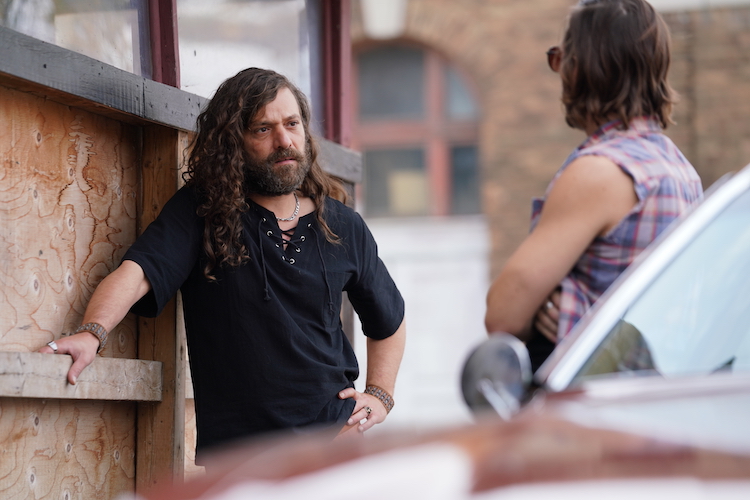 “Gangster life is a boring life, I think. It's not that interesting, and these guys are not that interesting, generally. But Donald Lavoie was maybe an exception, because he was charismatic. He was very intelligent. And that's why we made a movie about him. Also, there's the fact that when his career ended after the trials, he just disappeared and never committed a crime again, not even a parking ticket, they say. So that's also a part that's very fascinating. He’s a fascinating character, but I think we have to give ourselves the freedom to make things up when doing fiction.”
“Gangster life is a boring life, I think. It's not that interesting, and these guys are not that interesting, generally. But Donald Lavoie was maybe an exception, because he was charismatic. He was very intelligent. And that's why we made a movie about him. Also, there's the fact that when his career ended after the trials, he just disappeared and never committed a crime again, not even a parking ticket, they say. So that's also a part that's very fascinating. He’s a fascinating character, but I think we have to give ourselves the freedom to make things up when doing fiction.”
Right. Is he popular in Canada? Do a lot of people know about him, or not really?
“At the time when the trials happened, he was known. He made this famous interview that's still available. At the end, we kind of recreated the interview with Éric, but it's still available on the internet. It's a half-hour interview, and it’s impressive and also a reason why we made the film. I'd seen it a long time ago, and when I started the research, I watched it again. And so, yeah, to answer your question, he was kind of forgotten. Forty years is a long time.”
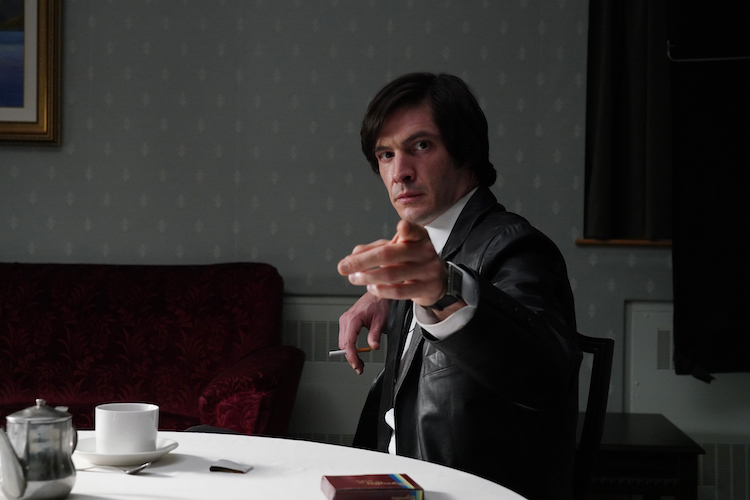 Some writers struggle with coming up with titles. How did you come up with DUSK FOR A HITMAN? Do you struggle with titles at all?
Some writers struggle with coming up with titles. How did you come up with DUSK FOR A HITMAN? Do you struggle with titles at all?
“Oh, the distributor found the title. In French, it's Crépuscule for a Killer. Crépuscule is more like twilight than dusk, but it's similar. But it wasn't hard, no. It's Martin Gerard, the co-screenwriter who found the French title, and it was translated to DUSK FOR A HITMAN.”
Co-writing teams always interest me. Would you talk a little bit about the writing process and how you worked with Martin Gerard on this?
“Yeah. Martin and I, we worked on this project together for the first time. Since [then], we wrote another movie, which I'll be shooting this summer. Actually, what we do is we talk a lot first. We can spend a month or two just talking, brainstorming roughly, and slowly things start to place themselves. We work the beats of the story and the regular steps of writing a screenplay, but we talk a lot before starting to write, and once we feel we get it, we start putting things together. Martin does most of the writing work, the actual dialogue, and he's more the writer than I, but we designed the whole story together, and I'll write some scenes sometimes. He'll say, "Oh, you could do this one." Okay. I write the scene. It's a mix of everything, but for the design of the thing, we spend a lot of time together just talking, talking, talking, talking. And sometimes we lose two hours, talking of nothing, of something other than the movie. But it's surprising how sometimes we're lost, but suddenly things start happening and find their own way. It's a very fascinating process. And the process is what I like. I'm doing this mostly because I like to follow a project from beginning to the end. I find this so fascinating to work with all these talents, all these people that are working on the film, pretty much more talented than I am, so it's always an honor. It's always fascinating when you come to the music, the actors, color correction, you meet artists at every step.”
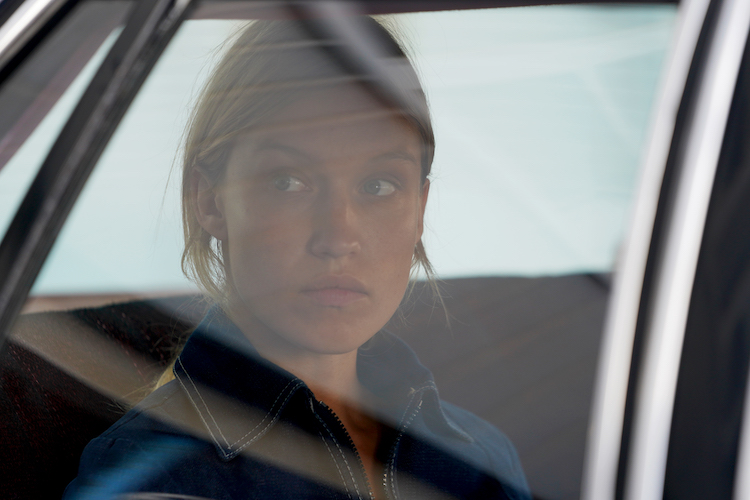 Yeah. Could you share a story from the set that best illustrates what it was like working with the cast?
Yeah. Could you share a story from the set that best illustrates what it was like working with the cast?
“First, it was a pretty easy cast to work with. They're all real professional, no divas there, everyone coming on set on time, working, working, working and giving all their emotions and soul to the characters. It was easy, but it's not always. It's a movie. Sometimes you don't find the scene on the first take. There's a scene in the movie where Donald Lavoie, Benoit Gouin (Claude DuBois), and Serge (Joakim Rabillard) are in an alley and they're talking about, "What are we going to do next?"
“There are only three guys talking, so at one point, I told Joakim Rabillard, "Well, you should be more annoying there." We kind of crank it up as we go along, so [we go] from "Oh, I don't know if it works," to "Wow, this works so well." It's an hour of work, but that's very satisfying. That's where you bring the creativity of the actors to help you and find a way. It's a teamwork, and that's what I like. It's the idea that you’re in this bubble, and it's pure creation. That's the fun of working with actors. You bring something, but they bring a lot more than you do to give this flavor, this sparkle.”
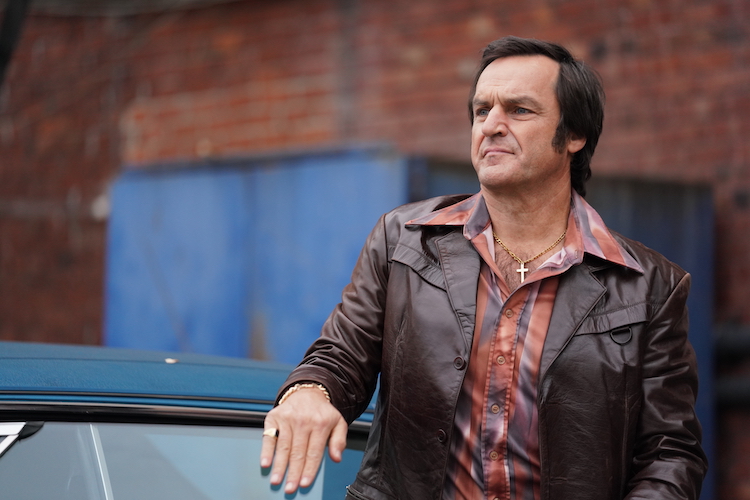 Very cool. What was the biggest challenge of setting it in the '70s and early '80s?
Very cool. What was the biggest challenge of setting it in the '70s and early '80s?
“The budget. We work on a very different scale from what they know in the United States, small scale. But what helps us is it's a character drama. It's categorized as a thriller or a gangster movie, but actually, it's pretty much a character drama. It's very intimate, and we didn't have to work on a large, large scale. It was finding the details, the colors. Marie Lavoie, the art director and Jean Francois Lord, we worked a lot just to build this small universe that's coherent. And the hair, the costumes, everything, when you get the details right, it feels right. And you must also not be blinded by stuff that is outside the frame. Always remember, everything's happening in the frame. What happens when you do a story in this era, the problem is that you can't just stand left or right or say, "Oh, this is nice, let's shoot there." You choose your frame, and you are cut into it. So that's a big limit. But when you work it right, it looks true.”
You can check out DUSK FOR A HITMAN starting tomorrow, Friday, April 19 On Demand and Digital. Check out the trailer!
